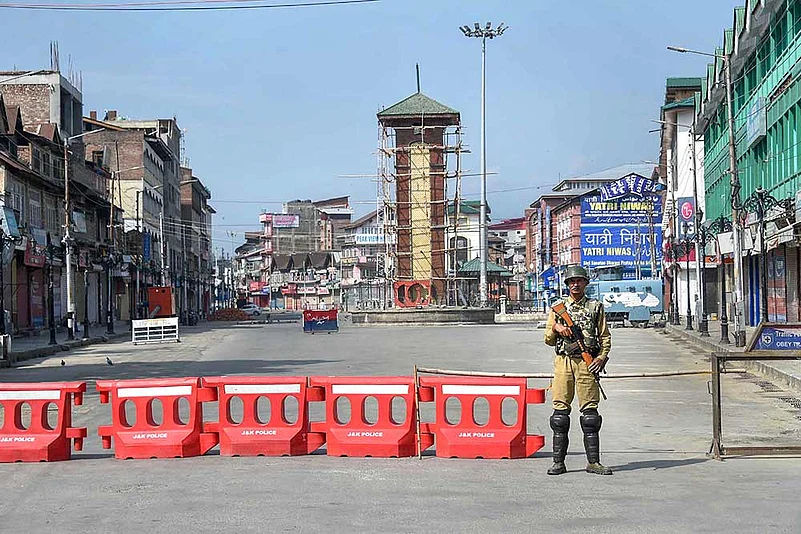Chinese Foreign Minister Wang Yi on Friday raised the Kashmir issue at the United Nations General Assembly, saying Indian and Pakistani leadership should peacefully resolve the matter as per the UN charter and bilateral agreements.
He said the Kashmir issue is a "dispute left from the past and should be properly and peacefully resolved based in accordance with the UN Charter, UN Security Council resolutions and bilateral agreements".
"No actions that would unilaterally change the status quo should be taken.
"As a neighbour of both India and Pakistan, China hopes to see the dispute effectively managed and stability restored to the relations between the two sides," he said.
Earlier, Indian Prime Minister Narendra Modi exhorted the international community to stand united against terrorism, which he described as one of the biggest challenges not for any single country, but for the entire world.
"We believe, that this is one of the biggest challenges, not for any single country, but for the entire world and humanity," Modi said while speaking in Hindi. This was his second address to the General Debate at the UN, five years after his maiden speech as Indian Prime Minister in 2014.
Pakistan Prime Minister Imran Khan too spoke at the United Nations General Assembly on a variety of issues and challenges facing his country.
Khan, too, raised the Kashmir issue, saying "when the curfew is lifted in Kashmir, there will be a bloodbath.''
Khan alleged that Prime Minister Modi was furthering the agenda of RSS in Kashmir and termed the organisation "a group inspired by Nazi."
"It is an organisation inspired by Hitler and Mussolini. They believe in racial purity and superiority. They believe they are an Aryan race," Khan said.
In his 45-minute long speech at the 74th session of the UNGA, Khan warned that if there's a face-off between the two nuclear-armed neighbours, the consequences would be far beyond their borders.
(With inputs from agencies)


























